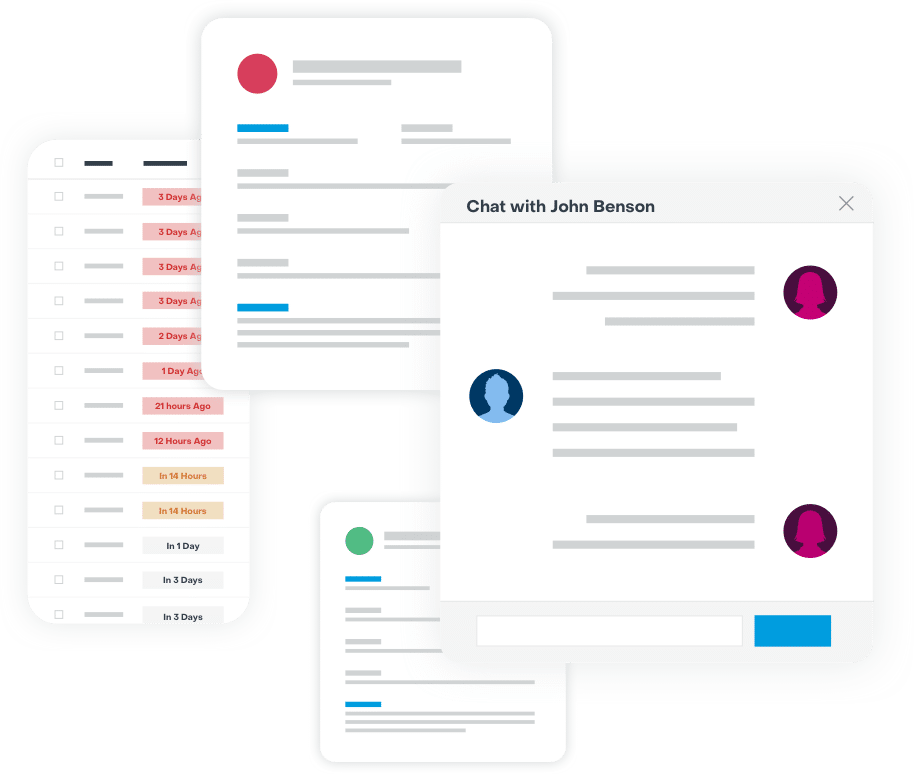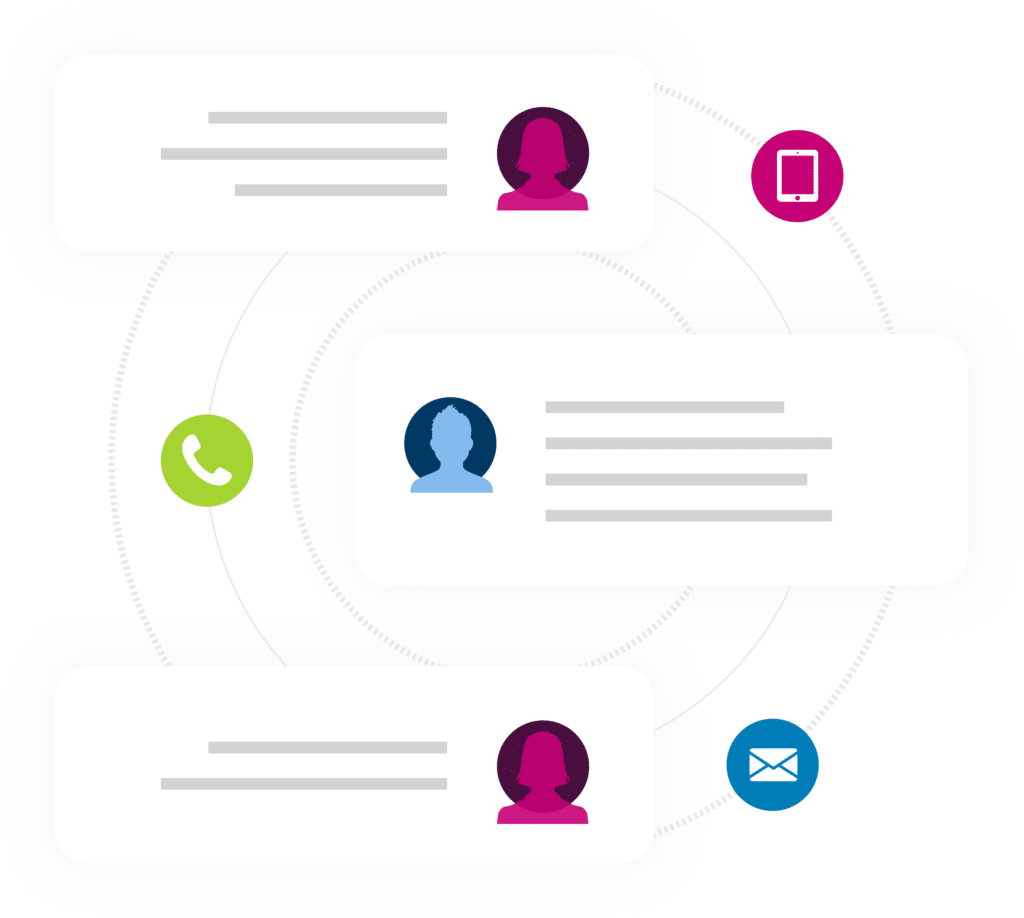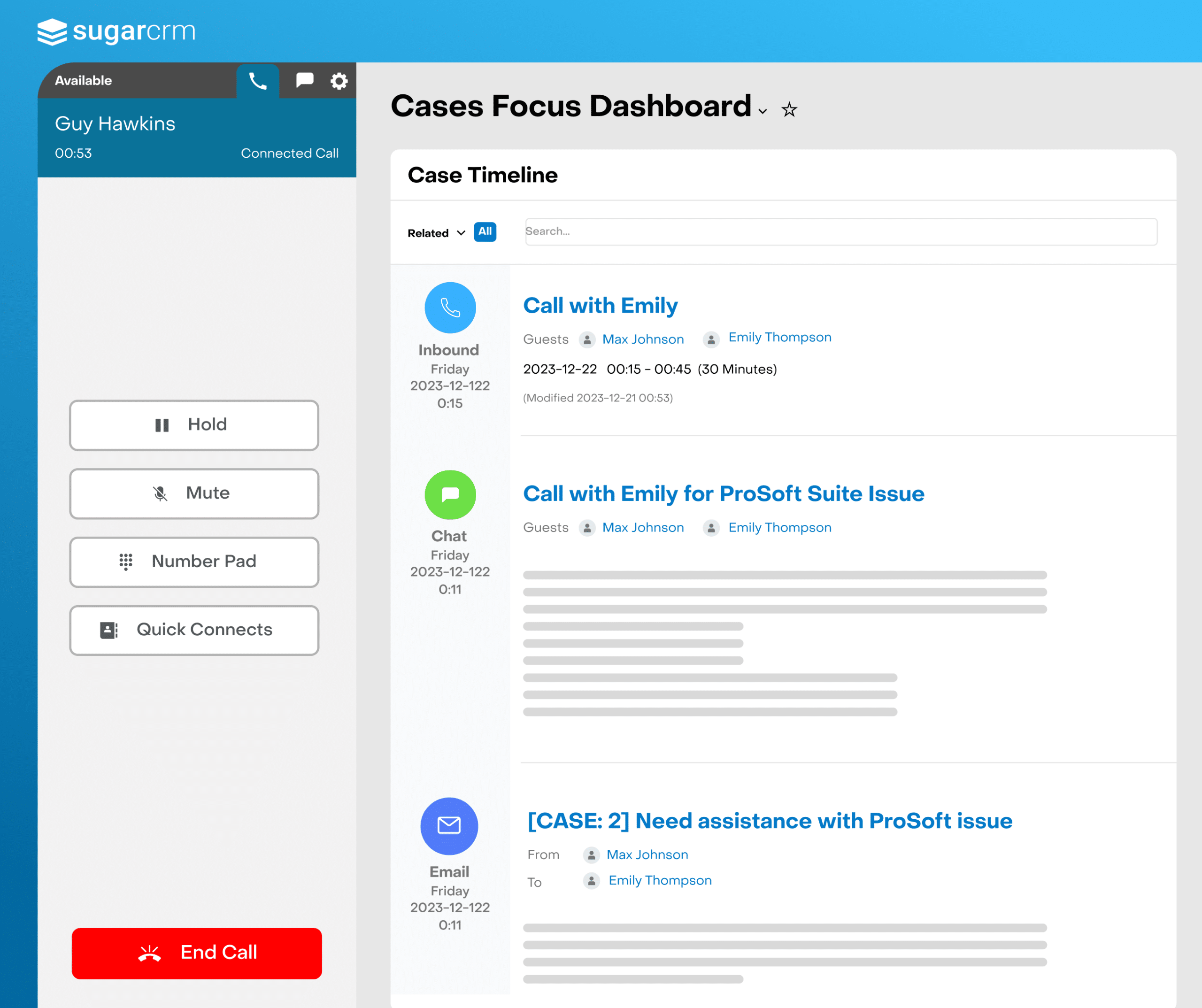Unlocking Business Growth with a Robust CRM: Insights from the SugarCRM’s Connected Conference
Being able to automate and streamline everyday business processes has proved to be one of the most efficient ways to accelerate business growth. And we certainly are familiar with how different industries or niches have specific automation and business process needs. This is why robust CRM is mandatory, regardless of your niche or industry. Robust solutions offer many ways to build and tweak existing processes, letting your organization adapt the CRM to its needs, not vice versa. They help you streamline standard business processes by managing approvals, sales processes, call triaging, and more. Let’s see how we, at SugarCRM, ensure all our customers find what they need in our solutions.
We got an inside look on this topic at this year’s Connected conference hosted in Austin, TX. Connected is a traveling SugarCRM customer event that happens every year where industry peers can gather to learn, share ideas, network, and build a strong community. Laci Garbs, VP of Global Operations at Rystad Energy, weighed in on what capabilities modern CRMs need to thrive in today’s markets. Below is a summary of her thoughts she shared in one of our customer sessions.
Seamlessly Integrated Systems
One of the most important aspects of a robust CRM is its ability to seamlessly integrate with other systems in your organization. A CRM’s primary role is to centralize customer data and make it widely available across all departments within your organization. However, many CRMs today still operate on fractured systems and cannot unify said data.
Having a centralized database where all information is one click away helps you ensure that all employees, regardless of the department they activate in, have access to the latest report from their own CRM interfaces. Solid CRM solutions should help you align and compile data from multiple sources: Marketing, Sales, Support, Finance, and Legal.
How does this help your organization overall?
- Improved Sales and Marketing Alignment: Integrated tools help vital departments such as Sales and Marketing to enhance collaboration and work together effectively. With perfect integration between these departmental solutions and a central CRM, businesses can streamline lead generation, nurturing, and conversion. Sales can gather valuable insights shared by the marketing team regarding customer behavior, preferences, needs, and engagement, which can be later used in their sales interactions.
- Efficient Task and Workflow Management: Solid CRMs enable businesses to create predefined workflows that increase efficiency and collaboration. Task and workflow management are essential aspects of a well-oiled organization, and these can be quickly set up directly within your CRM. You can track, assign, and monitor task progress without manually following up on tasks. This way, the chances of small yet important tasks falling through the cracks are minimized. Also, you can set up your CRM to send out automated task notifications and reminders to increase productivity and accountability.
- Enhanced Support and Service: Support and service activities and processes are also critical to business development and ensuring that you deliver proper levels of CX. However, robust CRM tools offer a 360-degree view of your customers. From your CRM, you can see all past customer interactions, their preferred communication channels, previous inquiries, and how these have found resolution. Integrating your Support platform to a central CRM that gathers all customer information and data is, thus, critical to business success.
- Accelerated Operations for Global Businesses: Some businesses operate in different states, countries, or continents. Ensuring consistency across global operations is critical. A centralized CRM that perfectly integrates with other tools and solutions in your organization is essential in ensuring that your entire organization keeps track of the same metrics, has access to the same data points, and identifies the same growth and improvement opportunities.
“We have over 25 offices globally and almost 700 employees. For me, to understand from a regional basis, where I sit in Texas, Singapore, or the London office, I can actually see where we’re having pitfalls, both as the commercial team has a regional team and a sub-regional team. If you’re not using that, and you are having issues with what your process looks like, I cannot say enough that this is considered the most useful tool I have in my arsenal.”
Laci G., VP of Global Operations, Rystad Energy

Data-Driven Insights
A robust CRM is the best way to ensure that you establish and follow healthy data hygiene across your organizations. After all, the best business decisions are backed by data. However, raw data is of little use. You need to interpret it in a fashion that helps you accelerate business growth and enhance CX.
Artificial Intelligence is a great way to make data-based predictions and take the guesswork out of your processes. How do data-driven insights help you grow your business?
- Decision Making: Data-driven insights can help you make better business decisions. Understanding the current state of your business and the health of your pipeline is essential, and predictive AI can help you in that regard by analyzing internal data and external factors from third-party sources that your data doesn’t cover. This lets you make confident decisions and focus on high-priority tasks and strategies across your organizations.
- Lower Business Risks: Data has the potential to indicate where your business is at risk and lets you take the necessary steps to minimize those risks. For example, by compiling internal sales data with market information, predictive AI models can indicate market trends and risks. Being aware of those allows you enough time to develop strategies that counteract potentially harmful market trends.
- Proactivity vs. Reactivity: Data clarifies and lets you shift from a reactive to a proactive operating model. For example, some predictive AI models help you identify which customers are more likely to churn. This gives you the necessary time to engage with customers strategically and shift their decisions to your advantage.
However, if you want to leverage the full potential of your data, you need it to be easily accessible, accurate, and clean. Once again, everything comes down to having a robust CRM equipped with predictive analytics that not only can analyze vast amounts of data but also offers easy access to data at an organizational level.
“I think your CRM is one of the single most valuable tools; it’s your most valuable data set. Because it’s not just your interactions with your customers. It’s understanding what your customers want. It’s understanding how to become more efficient and effective as a team. “
Laci G., VP of Global Operations, Rystad Energy
Flawless Interdepartmental Communication

A perfectly integrated CRM tool increases cross-departmental communication. When employees have access to the same information and operate within the same systems, they are more likely to collaborate and communicate efficiently.
For example, Sales must fully know a customer’s interactions with Support and Marketing. Or, the financial department needs easy access to notes of verbal agreements that can be translated into invoices, and so forth. A robust CRM is the perfect place to ensure that all departments are on the same page regarding communication and customer interactions.
At Sugar, we have extensive expertise in streamlining business processes for customers in different niches and industries. Are you curious about how we can help you, too? Get in touch with us, and let’s chat!
Or, if you’re interested in learning more about budding CRM capabilities and market trends, check out our recent research report, The 2024 State of CRM Report.


